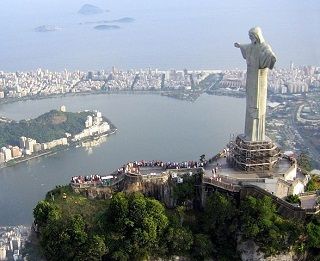From Guest Blogger Heather Legg: How is the Green Movement Progressing in South America?

While some of these are being dealt with, others are worsening and in turn, health issues are affected.
Here’s a look at some of the issues in South America and how the green movement is coming into play.
Air Pollution
Due to continued growth in urban development and industry, air pollution is still a major problem in South America.
More and more industry output as well as vehicle emissions are major sources contributing to air pollution. In areas, such as Latin America, the green movement is working on instilling air quality standards, though these are difficult to enforce.
Because of the health risks related to air pollution, it is a costly issue, not only monetarily but also in life.
With attention to better energy efficient models and proper planning of land use, hopefully these risks can be minimized.
Water Pollution
Not only in South America, water pollution is a major issue worldwide.
In Latin America, around 77 million people do not have regular access to clean water, according to the World Water Council. However, due to strides in environmental welfare, the numbers of people with access to water have increased from 33 percent to 85 percent of the population from 1960 to the early 2000’s.
Sewage, over polluted aquifers, pollution in bodies of water, lack of sanitation and treatment are all factors that lead to water pollution and illness from bad water.
Water activists are working to turn these problems around and are organizing national movements to maintain the people’s access and rights to clean water.
Recycling
Recycling includes managing landfills and maintaining waste. Due to overfilled landfills, illnesses are spreading as well as rodent populations that also bring disease.
However, with recycling programs and awareness, countries are hoping to improve on programs and public awareness to increase recycling efforts, including waste reduction and minimization.
It is always a challenge to get the policies from conceptualization to something done in the real world, but with promotion, education and awareness, these are ideas that can turn the troubles facing these countries around.
In some areas, like Sao Paulo, people make their living from garbage and recycling.
They sort through trash to find treasures to use or sell. However, this has its own dangers due to rodents or other dangerous substances or materials collectors may come in contact with.
Because of the lack of funding in many of these countries, the current living and socio-economic conditions, and the high existing pollution rates, it’s a hard situation to turn around.
However, sometimes small steps are great ones, and even if little by little these issues can be addressed, a difference can be made.
About the Author: Heather Legg is writes on a variety of topics, including green living, social media and Reputation.com reviews.
